If you’re going into Civil War expecting a commentary on the state of America in 2024, you might want to reset your expectations. Of course, it’s not exactly hard to see why Alex Garland’s new dystopian thriller touched a nerve before its release, dropping amid the cultural anxiety surrounding this year’s presidential election (specifically, the very real threat of the United States going full authoritarian) and the wellspring of negative polarization driving Americans apart. It’s just that, despite being a very well-made, well-acted film, Civil War isn’t interested in answering questions about its world.
The political angle behind Civil War isn’t the less-than-United States’s warring factions, but rather the virtues and risks of war journalism within this domestic dystopian backdrop. At the New York Q&A for his movie, Garland admitted he was struck by American journalists’ struggle to combat misinformation during the Covid pandemic, contemplating if even the Watergate investigation would have succeeded in the era of social media. On a technical level, Civil War is another strong addition to the director’s resume, which already includes Ex Machina and Annihilation. Yet for a movie about journalism, it’s a little strange that we leave the film knowing less about Civil War’s geopolitical woes when the bullets stop firing.
No, there’s no explanation given for what caused Texas and California to band together against America’s unnamed fascistic President (Nick Offerman). Or what’s even going on in the Florida Alliance. The setting is largely confined to the East Coast (the Loyalist States), where all types of upheaval are in effect as the U.S. military and Western Forces duke it out. The press, meanwhile, is still active and trying to document everything, including Kirsten Dunst’s legendary photojournalist Lee Smith. In the opening sequence, she and writing colleague Joel (Wagner Moura) find themselves covering a skirmish between civilians and the military, and end up rescuing wide-eyed photographer Jessie (Priscilla’s Cailee Spaeny) from a suicide bomber. For Jessie, it’s a new experience. For Lee, it’s just another day in the grizzled veteran’s life, haunted by the very things she captured overseas playing out across the home front.
What we know is that the war is nearing its end. The Western Forces are continuing their advancement on Washington D.C. and the President, no matter how defiant his White House PR messages, is all but certain to lose. So, Lee and Joel plan on driving to D.C. themselves, hoping to obtain the President’s final interview and photo before his execution. Joining them is fellow reporter Sammy (Stephen McKinley Henderson) and Jessie, who seeks to follow in Lee’s photojournalist footsteps. Lee, of course, is not happy about bringing this young woman into a potential war zone, even as Sammy points out she was Jessie’s age when her career began.
At heart, Civil War is a road trip film, a vehicular journey down the semi-ruins of cities and small towns, with occasional stops capturing vignettes of the chaos. These scenes are unnerving precisely because they’re so familiar, yet deeply alien. One minute our leads find themselves enjoying a moment of quiet while observing an exchange of rockets fire. The next they’re shadowing rebels advancing on a military unit in a nearby building. Garland and cinematographer Rob Hardy take the iconography Americans might see on the news involving a Middle Eastern conflict and turn all-too familiar U.S. locations into those battlegrounds, rendering the ordinary quite upsetting.
Its bombastic third act aside—which plays out like a live-action Call of Duty level—the war isn’t so much about combat as it is how seemingly irreversibly divided things are at this point. This sentiment is crystalized by Jesse Plemons’s brief but terrifying cameo as a militant questioning the Americanness of his prisoners, an exchange that strips away whatever levity Civil War had until that point with its frank xenophobic sadism.
However, Garland never tries to deconstruct his broken America any further. The people Lee and her colleagues meet have little to say about their livelihoods or thoughts on the President. The scale of President’s criminality is vague beyond muscling his way into a third term, disbanding the FBI, and ordering military strikes on civilians. And real-world namedrops—such as making Charlottesville a travel destination or Lee’s early success covering the “Antifa Massacre”—are just that, namedrops. It’s a film more interested in diligently pursuing the big story on the horizon than asking questions about events which made the story possible. This lack of exposition will appeal to some, but others could find it frustrating if they wanted something deeper.
There is, at least, one consistent theme here: For a democracy to survive, a free press is mandatory. In 2024 America, that message is more important than ever before.

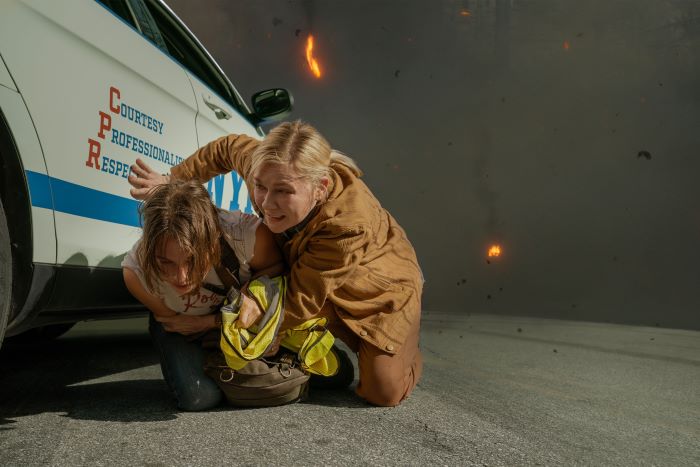

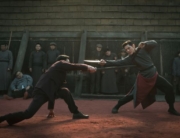
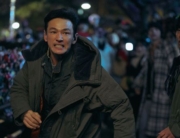
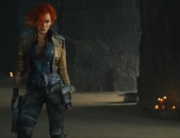
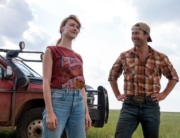
Leave A Comment